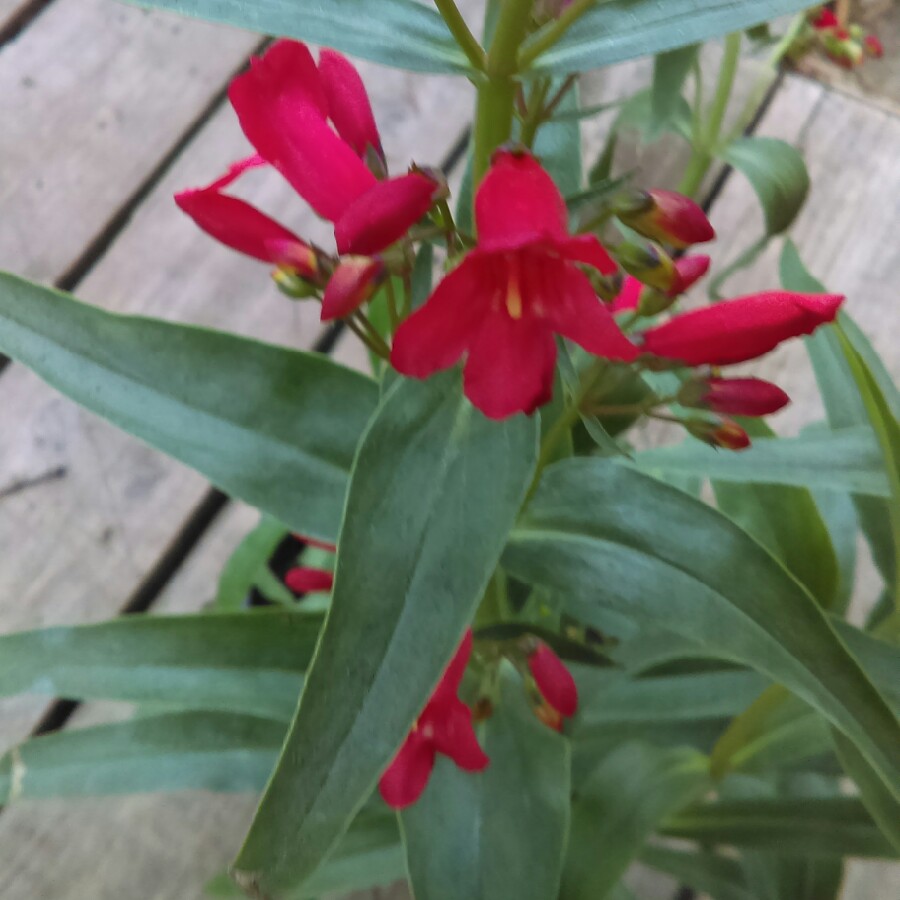
Penstemon 'Red Riding Hood'
Beardtongue 'Red Riding Hood'
Most penstemons are deciduous or semi-evergreen perennials. The tube-shaped, and two-lipped flowers are predominantly blue, red or purple. They are borne is spikes or clusters. Half-hardy plants can lose their leaves in harsh winters and most cultivars are slightly tender and will most likely be killed by frost. The tall border plants may survive winters under sheltered and well drained conditions but they are usually grown as annuals.
Contributed by @jojojoni
-
Full sun
-
Very little water
-
A little frost hardy: 32F (0°C)
-
Free draining and fertile
Common name
Beardtongue 'Red Riding Hood'
Latin name
Penstemon 'Red Riding Hood'
type
Herbaceous Perennials
family
Plantaginaceae
ph
5.0 - 7.0 Acid - Neutral
Plant & bloom calendar
-
Best time to plant
-
When the plant will bloom
full grown dimensions
 0.60 M
1.00 M
0.60 M
1.00 M
Penstemon 'Red Riding Hood'
Most penstemons are deciduous or semi-evergreen perennials. The tube-shaped, and two-lipped flowers are predominantly blue, red or purple. They are borne is spikes or clusters. Half-hardy plants can lose their leaves in harsh winters and most cultivars are slightly tender and will most likely be killed by frost. The tall border plants may survive winters under sheltered and well drained conditions but they are usually grown as annuals.
Flowering Season
From Early Summer TO Mid Autumn
1 inch long flowers are produced from early Summer.to mid Autumn
Planting Outdoors Spring
From Early Spring TO Early Spring
Plant in early spring. They do well in ordinary garden soil and in a sunny position.
Propogation by cuttings
From Mid Summer TO Late Summer
Take 3 inch long cuttings of non-flowering lateral shoots in mid to late summer and insert into a mixture of 1 part peat, 1 part sand and 2 parts loam. Plant in a cold frame and plant out the rooted cuttings in spring.












